Search Images
Browse Content (p. 1613)
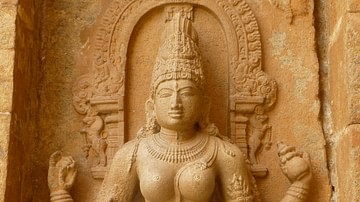
Image
Saraswati, Gangaikondacholapuram
A granite statue of the Hindu goddess Saraswati (Sarasvati) from the Brihadeshwara temple, Gangaikondacholapuram, Tamil Nadu, India. c. 1025 CE.
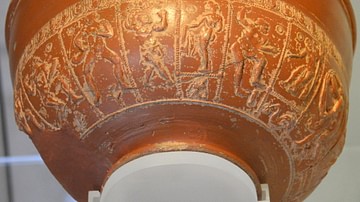
Image
Bowl with Neptune, Inveresk
Neptune was god of the oceans, freshwater, and seas (he was the counterpart of the Greek god Posiedon). The outer surface of this bowl was decorated with Neptune and a merman on his left and dolphin and Jupiter to his right. From Inveresk...
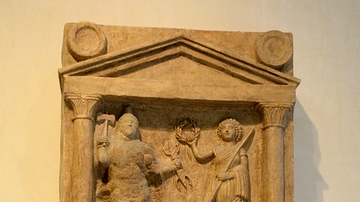
Image
Scultpture of Jupiter Dolichenus & Juno Regina
Roman soldiers, when they came to Scotland, brought their own gods and goddesses from their local areas. Exotic cults were easily adopted too, such as that developed to Jupiter Dolichenus (a mixture of Roman Jupiter and a Syrian sky god...
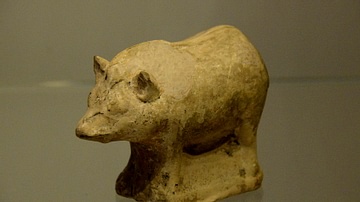
Image
Roman Votive Boar, Burnswark
This small boar was an offering to a god. Offerings were made on the hollow on the top of an altar (wine was often poured onto the altar). The idea of a contract between human beings and gods was central to Roman religious practice. From...
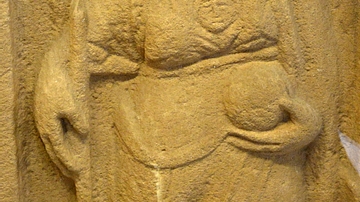
Image
Brignatia
Brignatia, goddess of war and engineers, was worshiped in Celtic religion. She was the chief goddess of a local tribe in northern England and southern Scotland. Here, she was depicted as a Roman goddess; she has 2 wings, wears a crown, and...
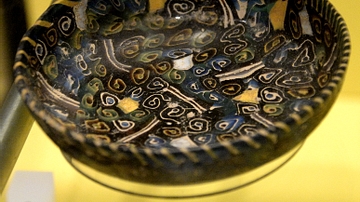
Image
Luxury Glass Bowl
Ancient cast glass features a wide range of decoration, produced by fusing together different layers of colored glass. Mosaic patterns were created by cutting colored glass canes in cross-section, and marble glass was mould-blown into shape...
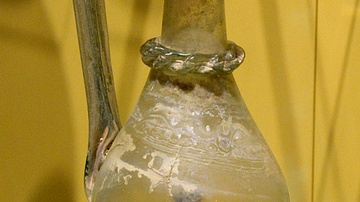
Image
Roman Double Glass Vessel
This remarkable cast Roman vessel contains a 2nd miniature vessel attached to its base. Double vessels/flasks have been discovered in both western and eastern parts of the Roman World. This suggests that craftsmen were in direct contact with...
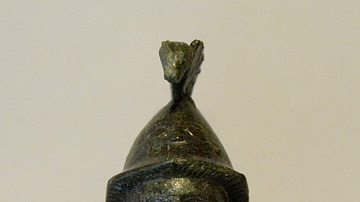
Image
Mount with Bust of Minerva, Elginhaugh
Minerva (Menrva) was the Roman goddess of wisdom, medicine, poetry, and magic and a member of the Capitoline triad (together with god Jupiter and goddess Juno). From Elginhaugh, Scotland, late 1st century to late 2nd century CE. (National...
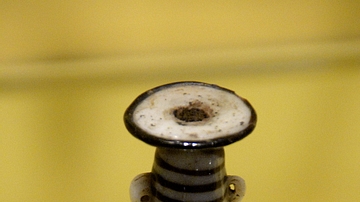
Image
Glass Vessel Made by Core-forming Technique
Core-forming is one of the earliest glass-making techniques. The body of the vessel was shaped around a core. Colored trails of glass were wound around it, and the rim and handles added. the vessel was then cooled and the core removed. Mediterranean...
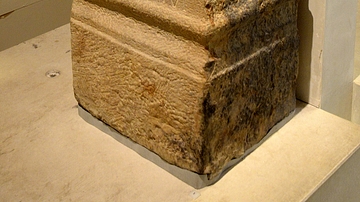
Image
Roman Altar to Jupiter, Newstead
In ancient Scotland, the Romans put up altars inscribed with the names of their gods. An alter was a public sign of a worshiper's beliefs. On each altar, the names of the god and the donor were recorded. Offerings were made on the hollow...